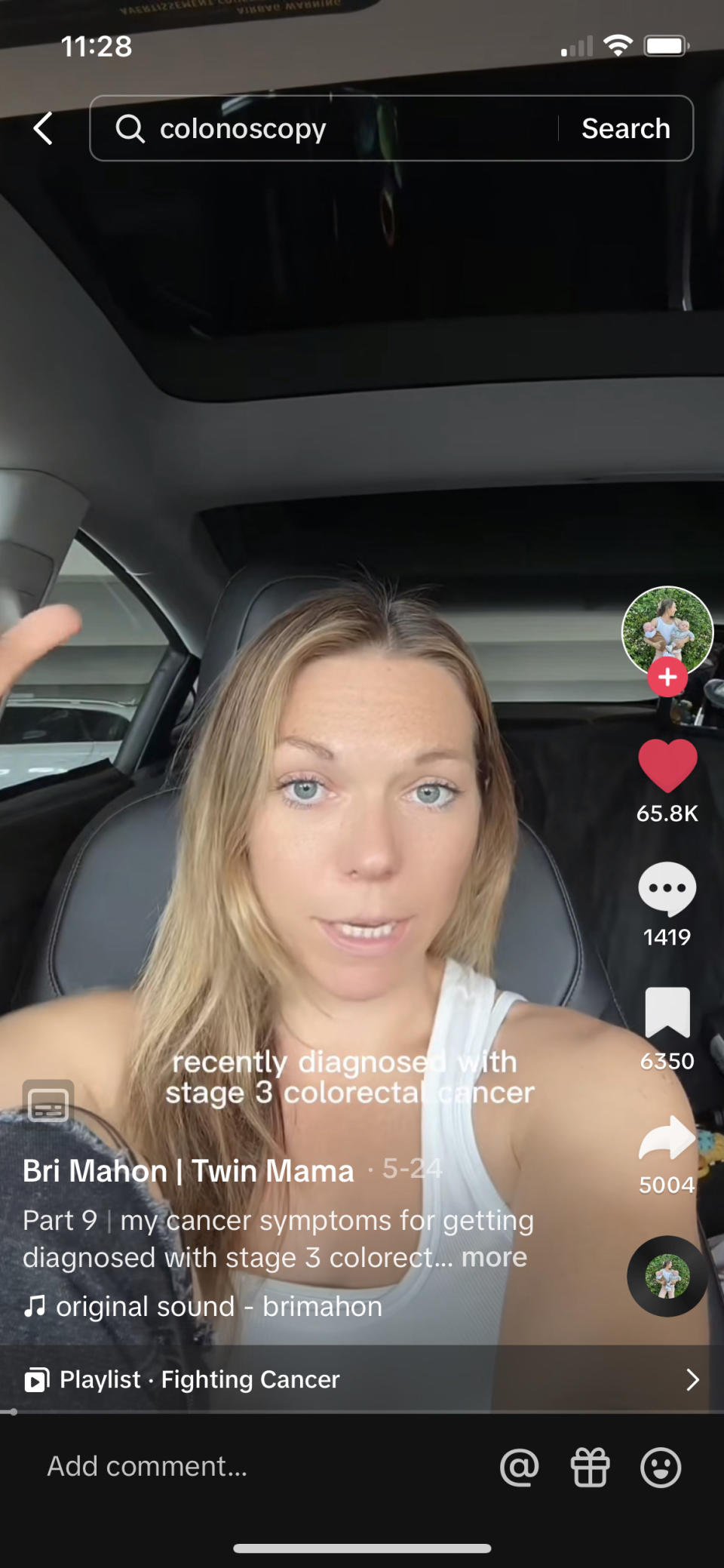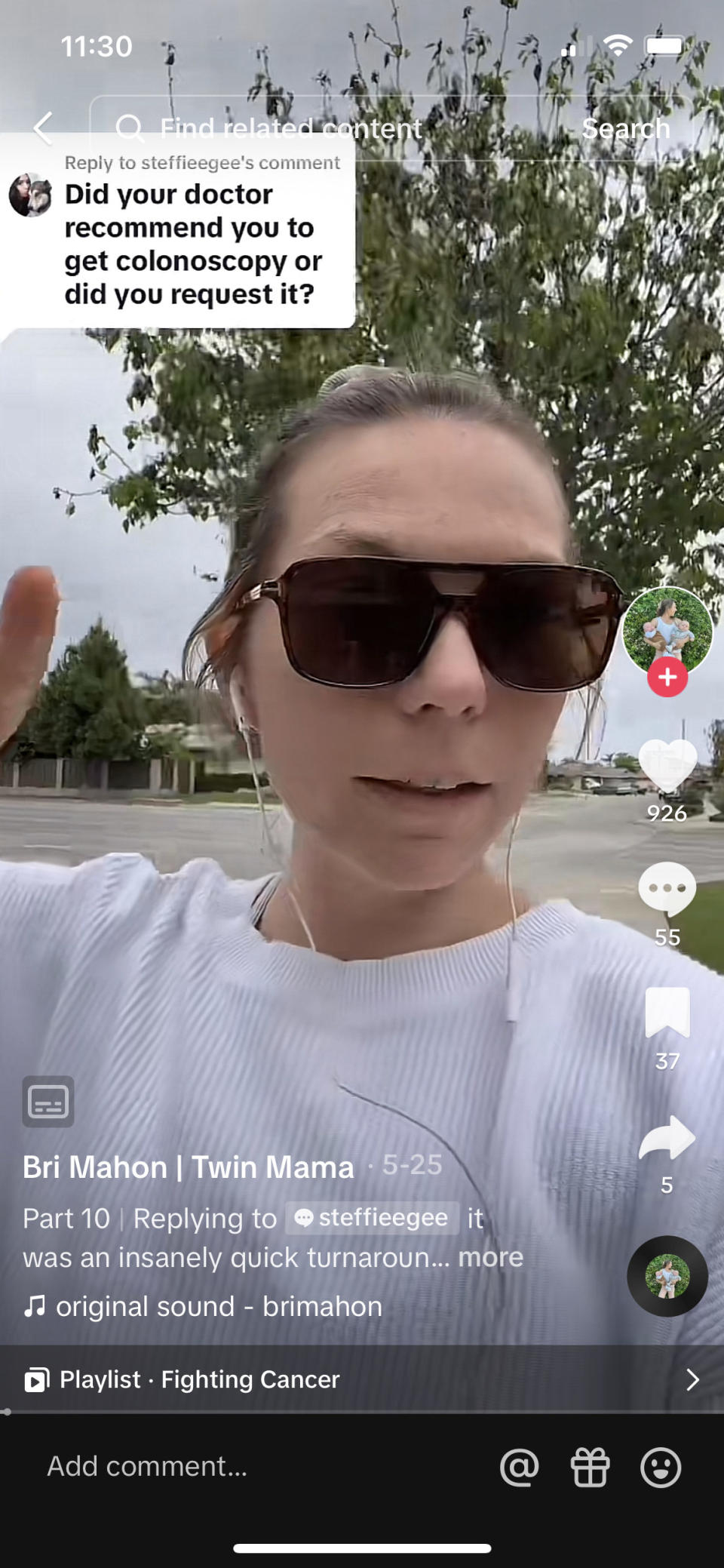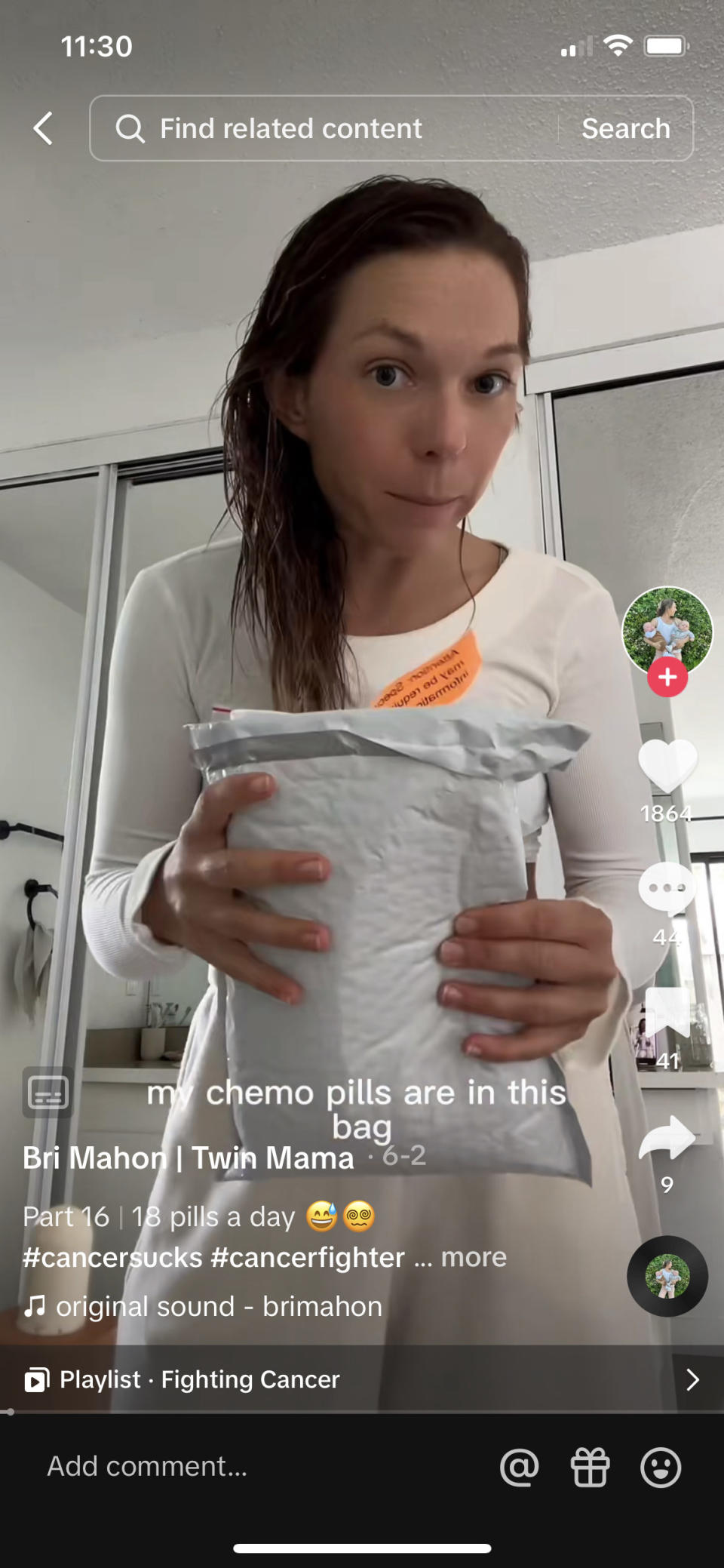This year, researchers at the American Cancer Society predict that about 153,000 people in the US will be diagnosed with colorectal cancer. But unlike past years, they say a growing percentage of these patients will likely be younger adults under 50 — a predicted 13%. That’s 9% more than were diagnosed in 2020. And while that’s not an enormous slice of the population (~19,890 people), it’s still important to know what symptoms to look out for.


It’s not totally clear to researchers why more younger people are getting colorectal cancer, though it may be linked to diet, alcohol consumption, and other lifestyle factors. However, on the individual level, doctors really don’t know why any one person gets cancer while others don’t. It’s pretty much random.
Mementojpeg / Getty Images
The CDC currently recommends starting screening for colorectal cancers at age 45, which means that for younger patients, it’s up to us to know our bodies and raise a red flag when something seems off. But how do we know when it’s time to make that appointment?
31-year-old Bri Mahon (@brimahon), a mom of twins living in Newport Beach, California, took to TikTok to share the symptoms that led to her stage three colon cancer diagnosis, and her story is so important to hear.
In the video, which has been viewed nearly two million times, Bri shares that she was experiencing digestive issues for the last few years that she thought were due to IBS. Then, she started noticing her anxiety levels spiking and felt a lot of fatigue. “I was having panic attacks and I think it’s just because my body was really, really, really tired and going through whatever it’s going through growing a tumor.”


Then, last September, she gave birth to her twins who were premature and had to stay in the NICU for four months. During this time, she noticed blood in her stool but thought it was related to the pregnancy. Plus, she says, “I wasn’t even really thinking about what I was going through. I thought it was stress. I thought it was depression. I thought it was anxiety, kind of all these things coming up again. My fatigue was really bad, but again, I justified it in my head as my boys are in the NICU.”
But she shared that she finally sounded the alarm to her doctor when she started to notice blood in her stool more regularly. Her doctor then referred her to a GI specialist who ordered a colonoscopy, performed 10 biopsies, and finally gave Bri her diagnosis.
@brimahon / Via tiktok.com
In the comments, people shared their own experiences with going in to check out, like this person who pushed for a colonoscopy when they were 23 and found a pre-cancerous polyp. BTW, a polyp is the medical term for a growth in the lining of your bowel.


Survivors also chimed in to share that though this diagnosis can be terrifying to hear, they got through treatment and are now cancer free.


People also called out how medical gaslighting can make patients, especially young women, doubt our symptoms.


And others shared that they’ve gone in for similar symptoms and received a different diagnosis. So while these signs may point to cancer, you can’t know for sure until you get checked out.


Since every individual patient’s case is different, I reached out to Dr. Amit Garg. He’s a board-certified hematologist/oncologist who’s been practicing since 2014, and who has also posted on TikTok to raise awareness of colon cancer in younger adults.
Dr. Amit Garg, @blooddocdad / Via tiktok.com
First, I asked Dr. Garg for signs that can point to colorectal cancer. He said, “Common symptoms include abdominal pain, diarrhea, rectal bleeding, and unexplained iron deficiency anemia.” While I wouldn’t go running to the doctor over diarrhea lasting just a day or two, symptoms that last longer without another obvious cause should set off alarm bells.


He also shared some factors that can predispose someone to develop this form of cancer. “Known risk factors for colorectal cancer include hereditary syndromes (Lynch Syndrome, Adenomatous polyposis syndrome), personal family history of colorectal cancer, inflammatory bowel disease (Crohns disease, Ulcerative colitis). There are risk factors that have shown to increase risk of colorectal cancer but do not affect screening guidelines (obesity, diabetes, red and processed meat, tobacco, alcohol use).”
If you’re worried about your risk of colon cancer, Dr. Garg says that some lifestyle tweaks could help prevent it. “Protective factors include physical activity, diet rich in fiber. Aspirin and NSAID use has been shown to decrease colonic adenomas which in the long run decreases risk of colorectal cancer.”


Full length of woman practicing breathing exercise. Young woman with eyes closed sitting in lotus position. She is living room at home.
Morsa Images / Getty Images
And he urges anyone who’s experiencing symptoms that are out of the ordinary for them to get checked out. “Any unexplained abdominal symptoms should be evaluated by a doctor to determine any need for lab testing, imaging or colonoscopy. Don’t ignore symptoms!” Seriously, don’t!!!
Bri told BuzzFeed that even though she’s usually cool under pressure, hearing her GI doctor say she likely had cancer was really overwhelming. “Hearing the doctor say she thinks it’s cancer shattered me to think about what this means for my babies. The next few days I felt like I was living in a different world than my ‘reality,’ and didn’t share anything with friends or family until my biopsy results came back positive for cancer, two days later.”
But once her diagnosis was confirmed, Bri found herself in a whirlwind of appointments making a treatment plan. “We found out that I have stage 3c colorectal cancer, and that due to where my tumor is placed and the aggressive nature of it, I will begin two rounds of chemotherapy and radiation, first with pills, then chemotherapy infusion. Once my chemotherapy and radiation treatment are complete, I am looking at surgery to remove the remaining part of the tumor. The whole process will most likely take six to nine months, not including recovery time from surgery and chemo.” She shared that she’s also doing IVF right now because her treatment plan will affect her fertility.
Bri says that the response to her video has been really moving, and she hopes that it can help at least one person get the care they need. “I’ve read many comments of personal stories and heartbreak, also success stories and celebration. I was surprised that so many people said they are worried about things they are experiencing and are going to get checked out or schedule a colonoscopy because of my symptom video… I hope that one person sees this, gets a colonoscopy, or goes to the doctor for something they’ve been putting off and it saves them.”


She also shared that living with this disease is so much more than the brave cancer warrior stereotype. “I have had many moments where I feel completely motivated, and also am riding a rollercoaster where I have days where I just want to cry and cry and cry — for my boys, for my family, for what’s to come. I do feel like at this moment before treatment starts, I am in the eye of the storm. In some ways, I feel more present than I ever have in my entire life. Every moment with my twins is extra special. I cry tears of joy more than I ever have. Because I just really love my life. Which scares me, too.”
And her physical experience hasn’t been stereotypical either. “I think the most shocking thing about my diagnosis is that I would have never guessed it was cancer. Sure, I felt off in a way where I wanted to get checked out, but I originally assumed I had IBS and nothing concerning. Every time I’ve thought of cancer, I did not image an active, incredibly healthy 31-year-old with energy. It still feels very surreal to me to have my diagnosis.”


Calendar with schedule colonoscopy written. Colon Cancer screening reminder.
Debby Lowe / Getty Images
Her treatment plan is also not what you might picture, based on what you’ve seen in movies and TV shows. “It has surprised me that many people don’t know about modern treatment and chemotherapy. In addition to that, most people associate cancer with complete hair loss and a full-time hospital stay and incredible sickness… I will be taking chemo pills from home and hopefully won’t have as much hair loss as most people think when it comes to chemotherapy. Even with an infusion chemo treatment, the biggest obstacles that will come with it are fatigue, nausea, some hair loss but not all, and cold sensitivity.”


Finally, Bri says, “I am lucky that we caught my cancer early enough that I can go through treatment and have a chance. They said if I had waited the cancer would have metastasized quickly, as it is already appearing to show in my lymph nodes. My goal through sharing my story, journey, and all of this is to show whoever needs to hear it and see it that they can get through hard things. I want to show my boys that strength comes from softness and vulnerability and not giving up regardless. It is actually something they taught me going through the NICU, and now I get to take that courage and strength on my own journey.”
Follow Bri on TikTok or check out her GoFundMe.
